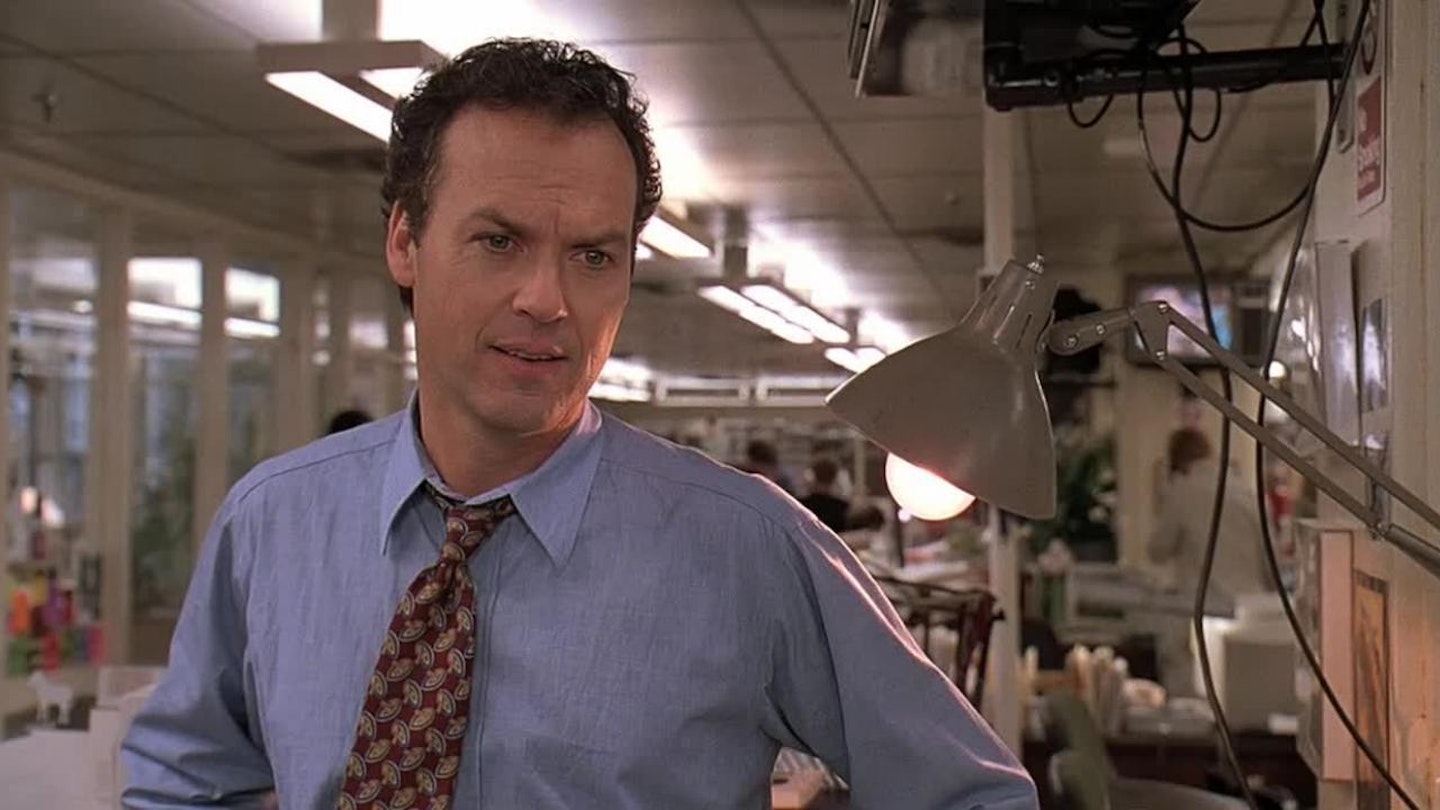Possibly Ron Howard’s most underrated picture, this buzzy, noisy, sassily written, and nearly realistic satire on the world of tabloid newspapermen, possesses a smartly caustic edge rarely seen in his sturdy middlebrow moviemaking — it is located somewhere between MASH and This Is Spinal Tap. Rare in Hollywood, Howard paints the cause of workaholic editor Henry Hackett (Michael Keaton) to get his paper out, to track down that killer story, as vaguely heroic. It’s also one of those really well-cast films that celebrate the idea of ensemble as its disparate characters unify into a hilarious-dramatic whole. The inclusion of a cameo from Jason Robards, who won an Oscar for playing fabled Washington Post executive editor Ben Bradlee in All The President’s Men, seals the deal.
The energy is what counts, keep it moving, like the fast talking Howard Hawks comedies, except harder edged and more knowing. Henry is hunted by the magnificent Glenn Close’s penny-pinching managing editor, a former reporter lost to the figures, and manipulated by old-paper man Robert Duvall, laden with prostate cancer and a Jurassic mentality. He’s also avoiding getting to grips with impending fatherhood — Marisa Tomei smarts away at home, a newspaper hack herself, whose put the career on hold. Howard makes a crass but effective parallel between the furious birth of Hackett’s child and the tumultuous birth of the daily paper. Especially as now Hackett’s canny nose for a story has led him to two black kids wrongly accused of murdering white tourists.
There is some unevenness in balancing all these elements, but the characters thrive in the chaos, leading to a finale, that while cracking its authenticity, is outrageously neurotic and includes Close’s immortal snarl: “You are so fucking fired!” that’s worth spending the entire film for alone.
